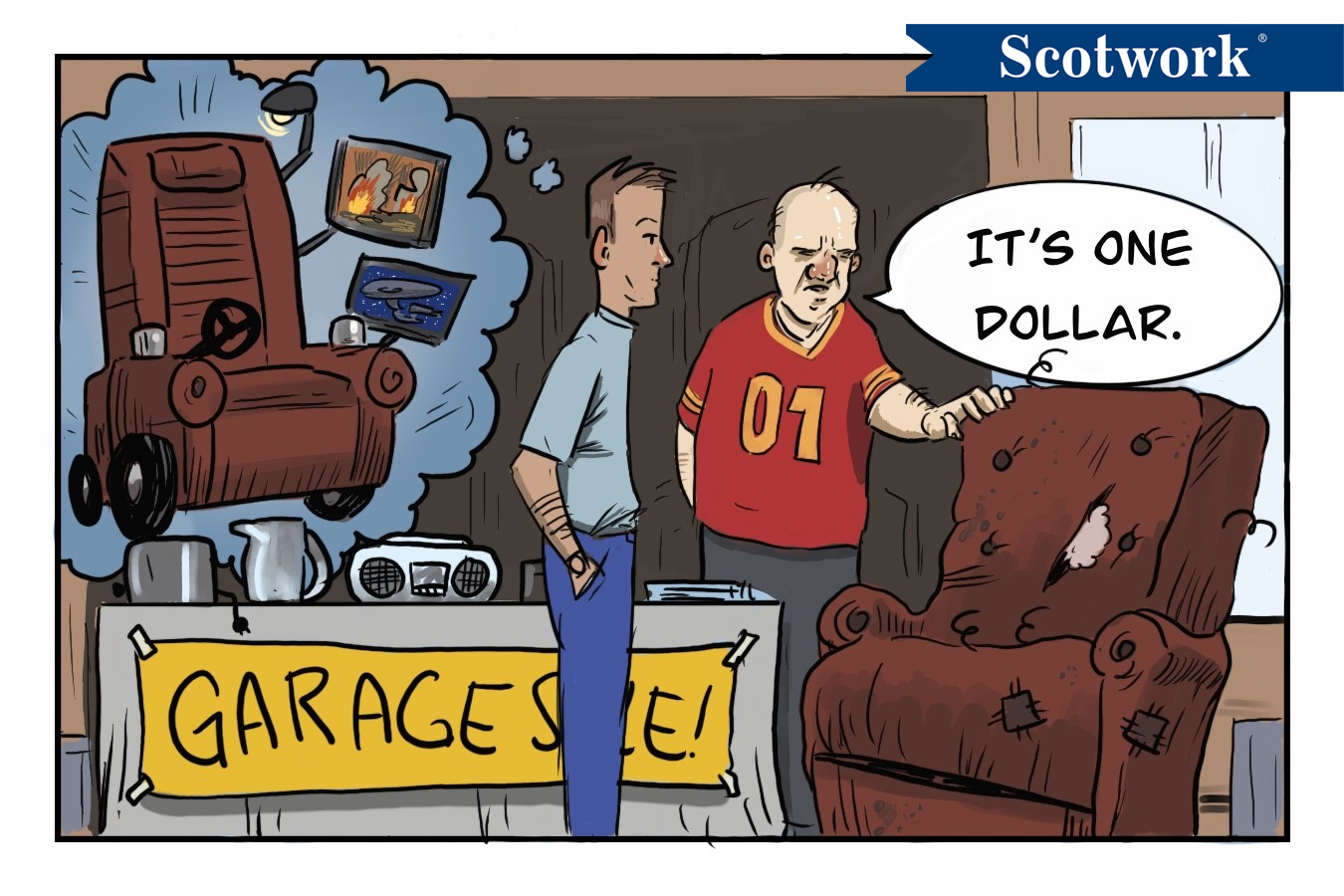“They seem to value this differently than we do.” In a contentious negotiation, my client had the epiphany that their team and the other side valued their potential deal in completely different ways. My client assumed that everyone saw the inherent value of the deal and negotiated accordingly. But when the other side didn’t seem as enthusiastic and lacked the same sense of urgency, it became apparent that something was amiss.
Much like beauty, value is in the eye of the beholder. My dad loved to go to auctions, estate sales, and garage sales. Partly because he just loved a good deal, but mostly it’s because he saw the value in what other people considered to be junk. My dad could take just about any piece of junk, get it working again, and turn it into something of value. Most of us can’t do that, which is why we see junk as nothing more valuable than, well . . . junk.
“Value” is an interesting term. When you ask most people to define value, they tend to talk about things of high monetary worth. When you ask them to talk about valuable things in their lives, they frequently talk about people and relationships. So, then, what is value?
Of all the definitions I found of value, this one was the most all-encompassing:
val·ue /ˈvalyo͞o/ (noun): the regard that something is held to deserve; the importance, worth, or usefulness of something.
Value is not always about money. It’s about what you find important, worthy, or useful. Something’s value can be measured in terms of money, but not everything we find valuable is measured in monetary terms.
Every negotiation is about negotiating value. However, parties may not see value in the same way — and that’s OK. Problems arise in a negotiation when, without verification or testing, you make assumptions about what the other party values.
This leads to not giving their priorities the consideration the other party believes they deserve. Or you may overvalue something and trade away more than you need to. If issues of value are not addressed, then proposals are often rejected, and negotiations take longer than they need to.
To avoid these value-based pitfalls, here are some techniques to consider in your next negotiation:
Ask the other side what’s important to them. As simple as that sounds, most people fail to ask what’s important. When I ask why, the most frequent response is because they’re embarrassed. They felt like they should’ve known the answer before they started negotiating. The other side usually won’t share this unless you ask, so ask!
Ask the other side why that’s important to them. It’s one thing to hear, “This deal is important to us.” It’s more valuable to understand why it’s important to them. Once you identify all the things of value, knowing why they’re valuable gives you context to make appropriate trades based on the other side’s perception.
Ask the other side to prioritize what’s important to them. Now that you know what’s valuable and why it’s valuable, try to understand how the other side prioritizes that value. In marketing, we would do conjoint analysis to understand the relative value a customer places on a product feature. It helps us understand what features are most important to customers. You can do the same in a negotiation by having the other side rank what’s important to them or asking them to make choices between items (e.g., “If I could do only one thing, would you choose A or B?”).
Once you understand how the other side values what’s on the table, the table becomes easier to negotiate. This will save you time, but crucially, it will also help you create more valuable deals for yourself and the other side.
We Can Help You Negotiate Value.
As obvious as that seems, it can be challenging to focus on what really matters in a negotiation. We can help! Draw on Scotwork’s nearly 50 years of real-world negotiating experience to help you visualize and verify value.

